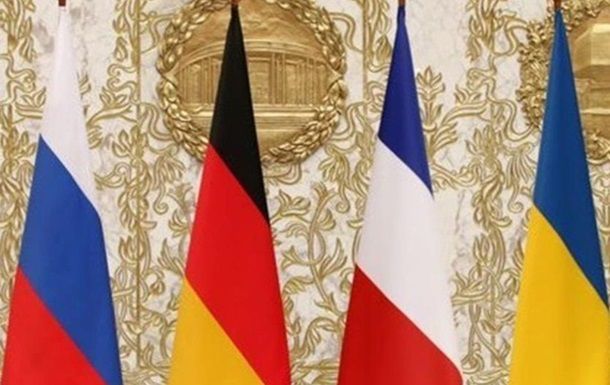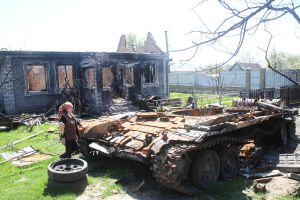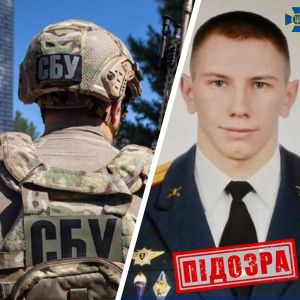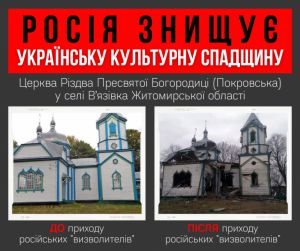On April 30, after a long pause, foreign ministers of Ukraine, Germany, France and Russia met again within the Normandy Format to discuss the situation in eastern Ukraine. Because of the coronavirus pandemic, the ministers had to communicate through video conferencing.
On the eve of the video talks, Ukrainian Foreign Minister Dmytro Kuleba met with journalists. He noted that the necessity for the meeting of the Normandy Format foreign ministers had been ripe long ago. “As we can see the implementation of the decisions of the last Normandy summit has stalled. So, we need to give them a push to keep them going in order to end the war, liberate the occupied Ukrainian territories and finally to stop Russian aggression altogether”, said Kuleba.
He shared his opinion as to the primary goal of the video conference which is to assess what has been done since the December summit meeting in Paris. “The second goal”, - Kuleba went on to say, - “and probably this will be the most complex part of the talks, is to find why the process has become stagnant. And the third task of the talks is to map out ways of finding solutions to the problems we have and to urge the Trilateral Contact Group to implement them directly”.
Heiko Maas, the Federal Minister for Foreign Affairs of Germany, said ahead of the video talks that the parties would discuss among other things the opening of the line of contact in Donbas that had been closed by militants because of the pandemic. “We want to see special attention paid to the fate of local populations, who have been particularly hard hit by the closing of the line of contact…”, he said. The Head of the Federal Foreign Office informed that under discussion would be the work of the OSCE Special Monitoring Mission that has to have safe and secure access throughout Ukraine in order to fully carry out its mandate. He emphasized Russia’s responsibility to exert its influence on militants in order to make concessions on these issues.
It should be noted that using the pandemic as an excuse separatists have closed all checkpoints along the line of contact but left opened that part of the Ukrainian-Russian border which they control together with Russia. Also, they have denied OSCE observers an access to their territory.
Considering the Russian position before the video conference, many political analysts have expressed their doubts as to the success of the talks. For example, according to reports in the mass media, Russian Foreign Minister Sergei Lavrov has agreed to participate in the video conference only under the pressure of the German party because as he has explained he does not expect any positive results from the talks of four ministers in the Normandy Format. In his words, the new Normandy Four summit will take place only on the condition if “Kyiv will begin to behave itself correctly and seek agreements with Donetsk and Luhansk”. In other words, the Kremlin will try once again to force the Ukrainian leadership to accept direct negotiations with separatists and at the same time will pose as sort of a peacemaker or a mediator along with the OSCE mission. And all this happens regardless the fact that for six years running Russia has been financing separatists and sending weapons to militants in eastern Ukraine while Russian military experts prepare and participate in combat actions against the Ukrainian army.
So, the prognoses of political analysts have come true. According to the statement made by Ukrainian Foreign Minister Kuleba following the video talks, the foreign ministers confirmed that so far only one clause of the nine-point agreements reached at the December summit in Paris had been fulfilled. It concerns exchanges of war prisoners.
Kuleba made it clear that Sergei Lavrov had urged Kyiv to start a direct dialog with the pro-Russian separatists. In this connection Kuleba said that Ukraine was ready to speak only with Ukrainians living in the occupied areas but not with the leaders of the illegal military formations.
“Our position remains unchanged. It is fully supported by our partners from Germany and France. The Trilateral Contact Group that consists of Russia, a country-aggressor, Ukraine, a country that defends itself against aggression, and the OSCE mission, a mediator that assists in finding a resolution to the conflict, is the key instrument for making mutually acceptable solutions that in the long run must lead us to the end of the war and the liberation of the occupied areas of Ukraine. And we are ready for a dialog on any sensitive questions but we are not going to cross read lines”, Ukrainian Foreign Minister Kuleba stated.
He has declined to answer questions regarding the possible date of a next Normandy Four meeting whether it could be held before the end of the pandemic. He has stressed that the unwillingness of the Russian Federation to fulfil its part of the reached agreements stalls the implementation of the Paris summit conclusions. At the same time Kuleva has noted that the top-level meetings of the Normandy Four are the only option. That is why negotiations will continue. “Since we will have no other Russia we have to conduct a dialog with the current one”, he concluded.
That same day, on April 30, the Verkhovna Rada issued an appeal to foreign parliaments and international organizations calling upon them to condemn the armed aggression of Russia against Ukraine, the illegal annexation of Crimea and the occupation of some districts of Donbas as well as political persecutions of Ukrainian citizens. The appeal was supported by 309 deputies of the Verkhovna Rada.
The newspaper Holos Ukrainy






